Black-owned small businesses have historically been essential in many ways — they’ve served as cultural hubs, meeting places for activism, family gathering spaces, and have played vital roles during the civil rights movement and beyond.
From 1900 to 1930, Black-owned businesses in the U.S. grew by the thousands. Jim Crow laws forced African Americans into growing insular communities, which led to a rise in Black entrepreneurs who now had big enough communities to support their business. At the same time, Booker T. Washington established what’s known today as the The National Business League which helped propel Black business owners.
Today, there are about 124,551 Black-owned small businesses in the U.S., according to a 2019 report by the census. Black business owners have faced institutional barriers to starting their own businesses, but despite the ongoing challenges, their resilience and dedication to their communities endures.
Here are some of the Black-owned small businesses that have made their mark on history nationally and in Seattle.
Nationwide
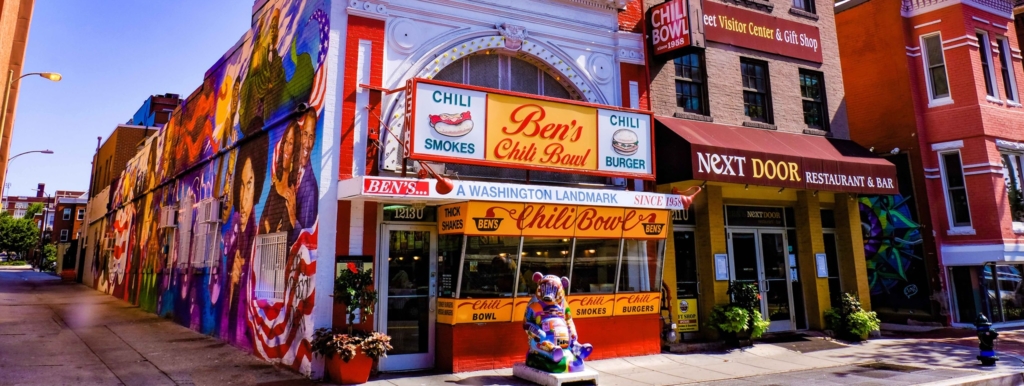
Ben’s Chili Bowl
Washington, DC
Ben’s Chili Bowl has been an enduring fixture in DC for over 63 years in a space that’s rich in history. Newlyweds Ben Ali, a Trinidadian immigrant, and Virginia Rollins opened their restaurant in 1958 when Washington was still officially segregated. Located in the U Street corridor (formerly known as “Black Broadway”), the restaurant stayed open during the 1968 civil unrest following the assassination of Martin Luther King Jr. to feed Black activists as well as the police officers and firemen. The destruction of businesses on U street caused businesses to close and many residents to flee toward the suburbs, but Ben’s Chili Bowl remained open yet again to help feed the construction workers rebuilding U Street and the Cardozo Metro Station.
Today, Ben and Virginia’s sons, Kamal and Nizam, run Ben’s Chili Bowl where they’re preserving their parents’ legacy and using the original chili and half smokes recipes that’s fed its community for years.
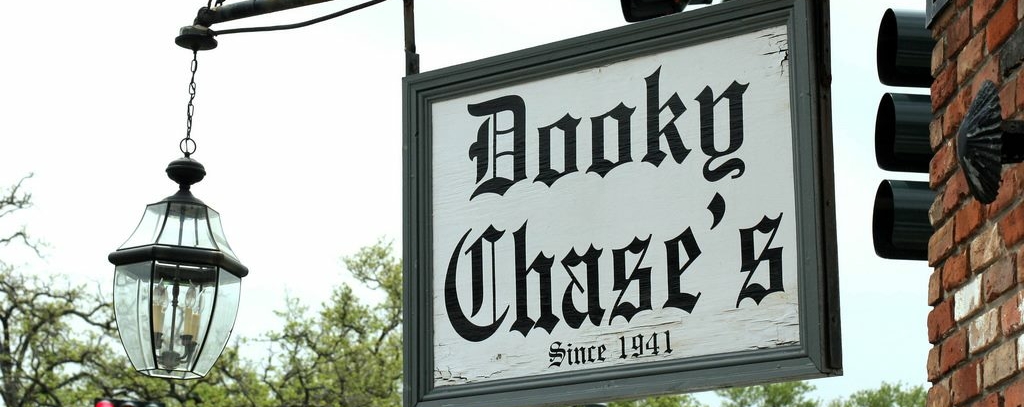
Dooky Chase’s Restaurant
New Orleans
Dooky Chase’s Restaurant has been a destination for Creole cuisine and the host of civil rights activists, musicians, entertainers, and politicians alike for over 80 years. The restaurant was originally a sandwich shop opened by Edgar “Dooky” Chase, Jr.’s family in 1941. In 1946, Edgar married Leah Chase — heralded as the “Queen of Creole” — who turned the historic restaurant into one of the first Black-owned fine dining establishments and a hub for civil and economic rights discourse in the Black community. While Leah cooked her famous gumbo z’herbes in the kitchen, community leaders like Thurgood Marshall and Martin Luther King, Jr. gathered upstairs to discuss politics and strategy. And because there were no Black-owned banks at the time, Dooky Chase acted as a bank and cashed the paychecks of Black blue-collar workers in New Orleans.
After Leah passed in 2019, the Chase family has continued to run the celebrated restaurant serving authentic Creole cuisine.
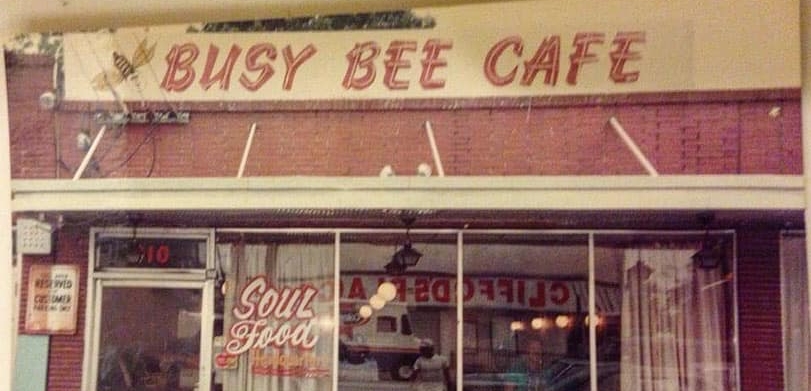
Busy Bee Cafe
Atlanta
When Lucy “Mama Lucy” Jackson opened the Busy Bee Cafe in 1947, it was one of the few places able to serve Atlanta’s Black community due to Jim Crow laws prohibiting where Black-owned businesses could operate. Despite this, Mama Lucy established her restaurant as a Southern food institution that it continues to be known as today. In 1987, current owner Tracy Gates took over the cafe with the goal to restore and continue Mama Lucy’s legacy of serving fresh Southern fare. Tracy carefully selects ingredients from local markets and through long-standing partnerships with family farms in the region. Busy Bee Cafe is known for its fried chicken, which Tracey developed using her own grandmother’s recipe and took years to perfect.
The cafe stands as the only business in the neighborhood started during segregation that still exists today, and Tracy is proud that her cafe continues to be a beloved meeting place in the community.
Five of Seattle’s Historic Black-owned Businesses
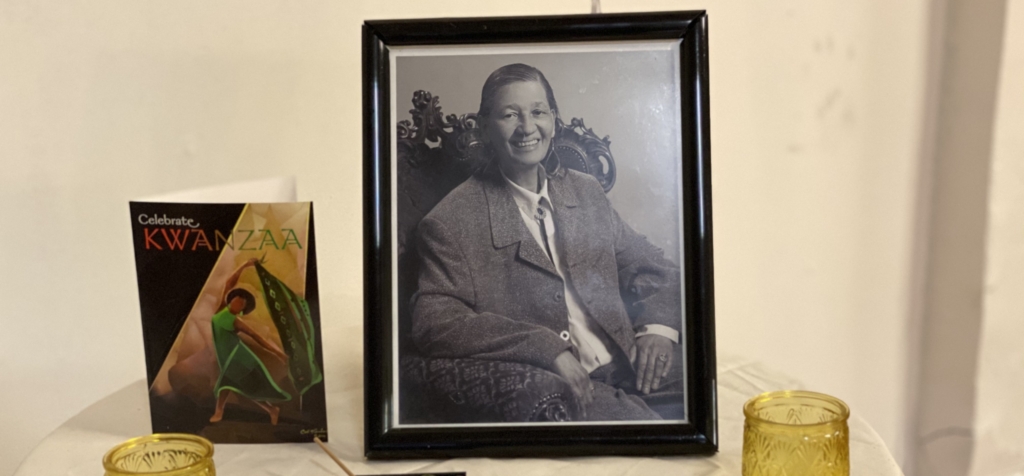
L.E.M.S. Bookstore
Columbia City, Seattle
The Life Enrichment Bookstore, or L.E.M.S., is the last known Black-owned bookstore focused on the African diaspora in the PNW. In addition to selling literature by Black authors and about Black experiences, L.E.M.S has historically been a thriving community hub. The bookstore hosted cultural events and educational programs, like African religious services, Kwanzaa bazaars for Black-owned businesses, as well as recovery groups and job training for people who were formerly incarcerated.
The bookstore first opened in the mid-1980s as a Christian bookstore. When Vickie Williams took over the shop with her wife, Aaliyah Messiah, in the early ‘90s, she sought to dig deeper into her cultural heritage and build a space where the Black community could learn about their history and celebrate their culture. Today, Vickie’s grandchild Tylicia Messiah and her godson, Hassan Messiah, are working to preserve the L.E.M.S. legacy Vickie started while building toward a better future for their community.
Flowers Just-4-U
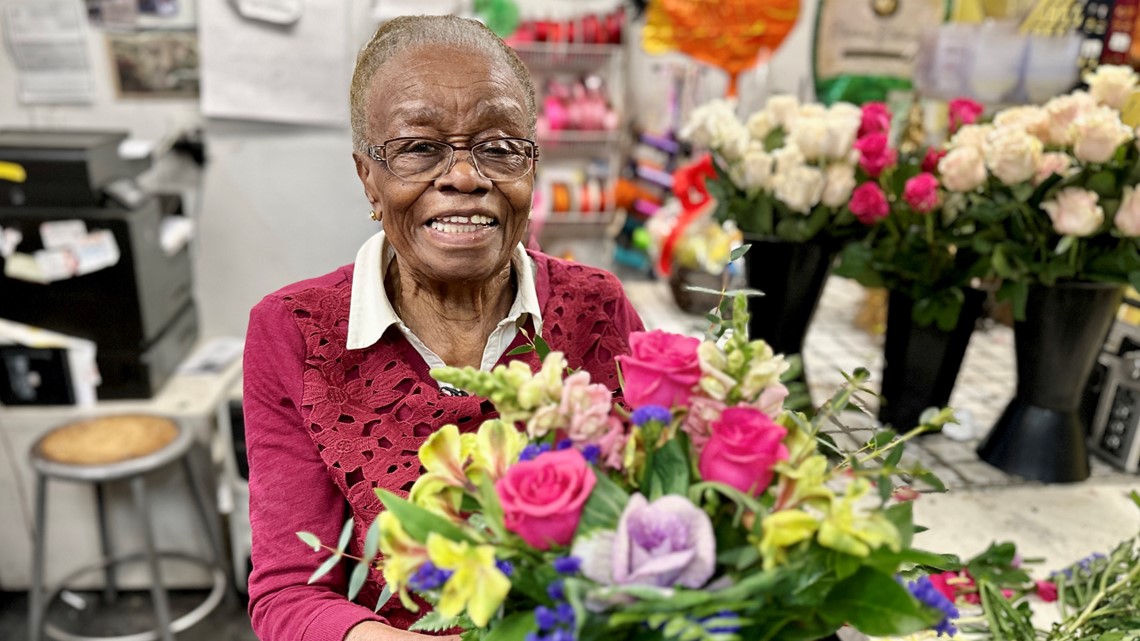
Central District, Seattle
Mary Wesley, affectionately known in the community as Miss Mary, has been serving the Central District for over 36 years as one of the only Black florists in the region. She always had a love for flowers and knew she wanted to share that love with her community. After retiring from her job at Boeing, Miss Mary went back to school to study flower design and horticulture. She graduated in 1984 and opened Flowers Just 4-U the same year.
Flowers Just 4-U has been by the side of Central District families for years despite facing the brunt of the neighborhood’s gentrification and city development. Miss Mary first opened her shop on 23rd and Jackson but was displaced in 2018 due to the development of the Jackson Heights apartment complex. She was forced to move to 23rd and Cherry, and her shop struggled to stay afloat from the lack of parking and foot traffic. But the community Miss Mary had been a part of for so long rallied together to help crowdfund her charming flower shop and keep her doors open.
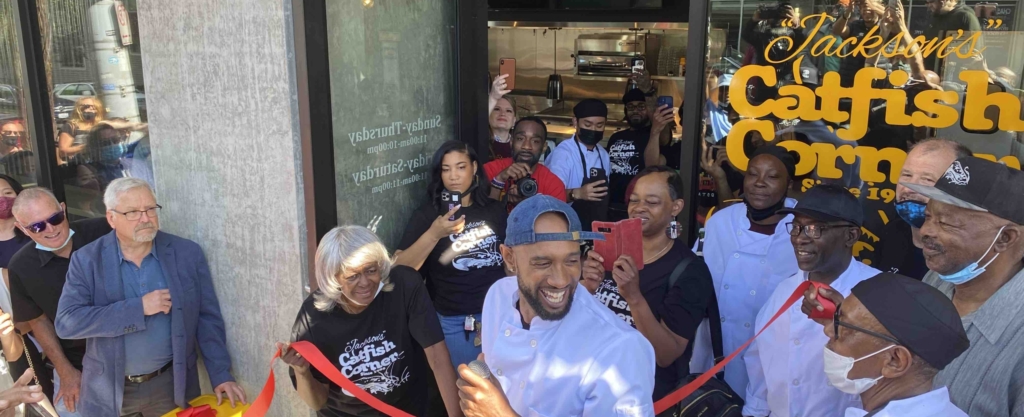
Jackson’s Catfish Corner
Central District, Seattle
Woodrow “Woody” Jackson and Rosemary “Rosie” Jackson opened Catfish Corner in 1985 on the corner of Cherry Street and Martin Luther King Jr. Way after hosting ever-popular fish fries in their backyard. Catfish Corner became a seafood institution that many Seattleites were raised on and a neighborhood mainstay for gathering with family and friends. When Woody and Rosie closed the restaurant and retired in 2014, the neighborhood was devastated and the absence of their restaurant was palpable. So, Woody and Rosie’s eldest grandchild, Terrell Jackson, stepped up and was determined to bring Catfish Corner back and build on his grandparents’ legacy.
After years of pop-ups and jumping from one temporary location to the next, Terrell opened Jackson’s Catfish Corner in 2021 on 23rd and Jackson. Now, Catfish Corner is back where it all began in the Central District serving the same recipe for fried catfish Seattle residents knew and loved.
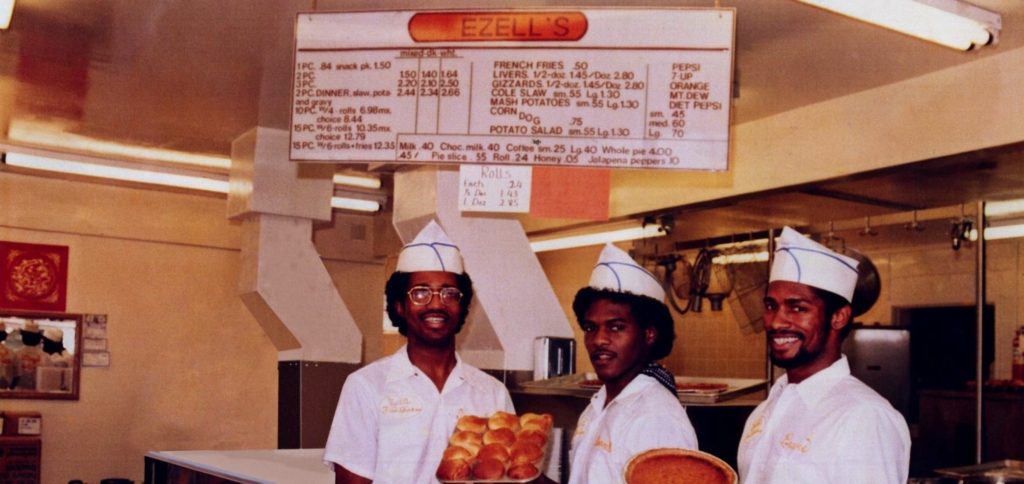
Ezell’s Famous Chicken
In 1984, Lewis Rudd and Ezell Stephens opened their nationally recognized fried chicken restaurant, Ezell’s Famous Chicken, that has since expanded into 17 locations in the Greater Seattle area. Lewis and Ezell first met while working together at a Brown’s Chicken in Marshall, TX, where they created a plan to open a fried chicken restaurant of their own. After relocating to Seattle, the duo opened the first Ezell’s Famous Chicken location in the Central District right across from Garfield High School.
The Ezell’s name became nationally known in the early ’90s after Oprah Winfrey lauded the restaurant’s crispy fried chicken on her show. Today, Ezell is no longer an owner of the business, but the restaurant remains family-owned and operated mostly by Lewis’ family.
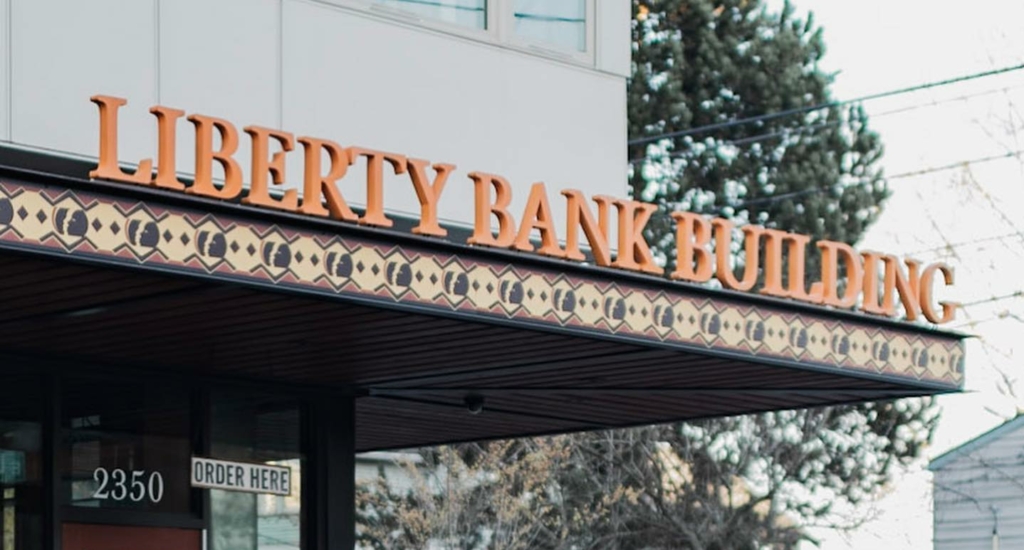
Communion
In December 2020, Communion Restaurant & Bar opened in the historic Liberty Bank Building in the Central District, engraining itself in Seattle history while creating its own legacy. The original Liberty Bank opened in 1968 on 24th and Union and was the first Black-owned bank in the PNW — it was a community response to redlining and disinvestment in Central Seattle. Though the original bank closed in 1988, the construction of the Liberty Bank Building aims to honor the history of its location through developing and supporting Black-owned businesses, ensuring the Central District is a hub for the pan-African community, and more.
At Communion, owners Chef Kristi Brown and her son Damon Bomar have one mission: foster community through fresh food and fine cooking. Recognized as on of Condé Nast Traveler’s Best New Restaurants in the World 2021, The New York Times’ The Restaurant List 2021, and Seattle Met’s Restaurant of the Year, Communion serves what Chef Kristi calls “Seattle Soul” food — a cultural mix of the Central District, Chinatown-International District, as well as her family roots in Kansas City.
We’d love to know of Black-owned businesses that you love for the role that they have played historically or currently play in shaping history. Let us know in the comments below.

There were also older black owned businesses back in the 60’s 70”s -2000”s , Lowe’s Grocery Jordan’s Drug and Grocery, McVeas Burgers, Eats Burgers , One Stop Burgers , Wilson Grocery Rhodes Grocery , Sammies Burgers, Ace Records Ghetto Records, Reconize These Businesses Sometimes They Played A Major Part Of Our Community In Seattle Washington
Thank you for acknowledging these businesses. Also Wess Hall – Twins Construction Company, Black and Tan, Liberty Bank. There is also a “Black Business Directory in Seattle, Wa in 1969” in the digital collections at the Seattle Public Library. Amazing